
The Mayor of Garret (also spelled The Mayor of Garratt) is a farce by Samuel Foote, set during a fictionalised version of the Garrat Elections carnival that took place in Surrey, England in the 18th century.

The Mayor of Garret (also spelled The Mayor of Garratt) is a farce by Samuel Foote, set during a fictionalised version of the Garrat Elections carnival that took place in Surrey, England in the 18th century.
The play opened on Monday, the 20th of June, 1763 at the Theatre Royal Haymarket, where it ran until the 3rd of September, 1763. [1] It was first published in 1764.
The play's original cast featured low comic actor Thomas Weston, who had been with Foote's troupe since 1760, in the part of Jerry Sneak, while Foote himself played the Major. The affable and pathetic character of Sneak was very popular, so much so that Sid Sondergard wrote in 1989 that "his name passed into the vernacular in the same manner as the modern cartoon character, Caspar Milquetoast" [2]
Lint, a doctor, arrives to see Sir Jacob; it is the day of the Garrat elections, and Lint is prepared to deal with the injuries to result from the carnival. They debate quack medicine. The argument escalates, and Sir Jacob turns Lint out of the house. Major Sturgeon arrives. The Major describes a battle, and discusses the merits of various companies with Sir Jacob. However, he had hoped to visit with Sir Jacob's two married daughters. The Major is to act as magistrate for the election of the new mayor; he and Sir Jacob expect many oaths from the townspeople today. Roger, a servant, enters, and announces that the people outside are suggesting a candidate for the position of mayor. Sturgeon leaves, to Sir Jacob's comment that “the fish is got out of his element.” He returns with Mrs. Sneak, one of Sir Jacob's daughters, and her husband, who promptly leaves again. Mrs. Sneak expresses her displeasure with Sneak, calling him “Meek! a Mushroom! a Milk-Sop!” Sir Jacob leaves, and Mrs. Sneak and the Major flirt. Sneak returns just as the Major begins to kiss Mrs. Sneak's hand. She leaves; Sneak and the Major discuss her merits. Bruin and his wife (Mrs. Sneak's sister) enter. The Major quickly leaves to “attend to the lady [Mrs. Sneak] instantly”, with Sneak's encouragement. Mrs. Bruin is thoroughly dominated by her husband; she exits at his orders, and Sneak expresses his envy at Bruin's control, as Mrs. Sneak allows him only two shillings a week for his own pocket-money. Bruin agrees to help Sneak beat Mrs. Sneak, but she calls for him, causing Sneak loses his will; he comments “what a sad life do I lead”.
The mob gathers under the window. Sir Jacob suggests that the common people in the mob have the potential to be great orators: “you will meet with materials to make a Sylla, a Cicero, a Solon, or a Caesar”. All exit. The mob enters, with Heel-Tap at their head. Heel-Tap presides over the election, as various candidates’ proposals are read aloud. Sneak goes after the Major and Mrs. Sneak, who have disappeared again. One candidate, Matthew Mug, presents his arguments for how to improve the town, but Heel-Tap refuses a bribe and denounces him. Sir Jacob's family returns; he chastises Bruin for his harsh treatment of his wife. Sneak rushes in, having discovered that the Major and Mrs. Sneak are in the locked summer-house. Heel-Tap enters, and announces that Sneak has been elected mayor. Mrs. Sneak enters, and Sneak stands up to her, announcing that he will begin to live his life as he chooses: “if some folks go into gardens with Majors, mayhap other people will go into garrets with maids.” She abuses Sneak, but he and Bruin have the upper hand. The Major enters. Bruin makes Mrs. Sneak cry and fights with the Major; Sneak capitulates to his wife's sobs. Mrs Sneak demands that another person be elected mayor. Sir Jacob suggests that Heel-Tap act as the “Locum tenens” (deputy).
Mary Megie Belden asserted in 1929 that The Mayor of Garratt had much more in common with comedies of the Restoration era, than with contemporary 18th-century plays, observing that "Sneak and Bruin with their respective wives have been easily recognized as descendants of Bisket and Fribble with their respective wives in Epsom Wells [written by Thomas Shadwell], and the scene where Sneak peeps through the key-hole of the summer-house in Act 2 was doubtless suggested by a scene in the same play." [3]
Charles de Lint is a Canadian writer of Dutch, Japanese, and Spanish origins. He is married to—and plays music with—MaryAnn Harris.

Earlsfield is an area within the London Borough of Wandsworth, London, England. It is a typical London suburb and comprises mostly residential Victorian terraced houses with a high street of shops, bars, and restaurants between Garratt Lane, Allfarthing Lane, and Burntwood Lane. The population of Earlsfield at the 2001 Census was 12,903, increasing to 15,448 at the 2011 Census.

The Garrat Elections were a carnival of mock elections in Wandsworth, Surrey, England in the 18th century. The events were organized around 20 May and would see crowds of tens of thousands travelling five miles (8.0 km) from London to take part. The elections were held for at least fifty years before declining after the death of Mayor "Sir" Harry Dimsdale in 1796.

Incidents in the Life of a Slave Girl, written by herself is an autobiography by Harriet Jacobs, a mother and fugitive slave, published in 1861 by L. Maria Child, who edited the book for its author. Jacobs used the pseudonym Linda Brent. The book documents Jacobs's life as a slave and how she gained freedom for herself and for her children. Jacobs contributed to the genre of slave narrative by using the techniques of sentimental novels "to address race and gender issues." She explores the struggles and sexual abuse that female slaves faced as well as their efforts to practice motherhood and protect their children when their children might be sold away.
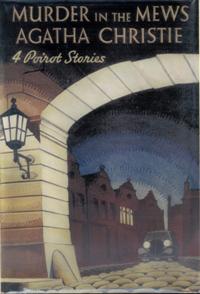
Murder in the Mews and Other Stories is a short story collection by British writer Agatha Christie, first published in the UK by Collins Crime Club on 15 March 1937. In the US, the book was published by Dodd, Mead and Company under the title Dead Man's Mirror in June 1937 with one story missing ; the 1987 Berkeley Books edition of the same title has all four stories. All of the tales feature Hercule Poirot. The UK edition retailed at seven shillings and sixpence (7/6) and the first US edition at $2.00.

To Kill a Mockingbird is a 1962 American drama film directed by Robert Mulligan. The screenplay by Horton Foote is based on Harper Lee's 1960 Pulitzer Prize–winning novel of the same name. The film stars Gregory Peck as Atticus Finch and Mary Badham as Scout. It marked the film debut of Robert Duvall, William Windom and Alice Ghostley.
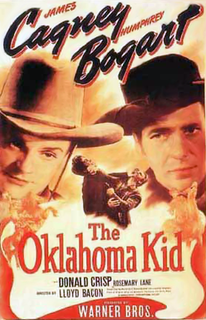
The Oklahoma Kid is a 1939 Western film starring James Cagney and Humphrey Bogart. The film was directed for Warner Bros. by Lloyd Bacon. Cagney plays an adventurous gunslinger in a broad-brimmed cowboy hat while Bogart portrays his black-clad and viciously villainous nemesis. The film is often remembered for Cagney's character rubbing the thumb and forefinger of his hand together and exulting, "Feel that air!"
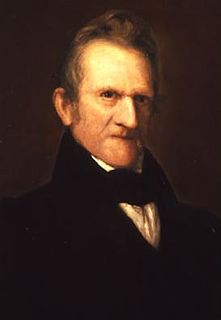
Ambrose Spencer was an American lawyer and politician.

A Bold Stroke for a Wife is Susanna Centlivre's 18th-century satirical English play first performed in 1718. The plot expresses the author's unabashed support of the British Whig Party: she criticises the Tories, religious hypocrisy, and the greed of capitalism.
"Deadwood" is the first episode of the first season of the HBO original series of the same name. The episode was written by David Milch and directed by Walter Hill. It first aired on March 21, 2004.

Jeffrey Dunstan (1759?–1797) was a second-hand wig seller in the West End of London who was the elected "mayor" of Garrat from 1785 to 1796, becoming a notable figure of his time.
Sarah Maria Wilson was an English actress.
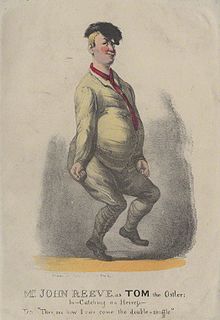
John Reeve (1799–1838) was an English comic actor. His early career was based on mimicry: he became a popular favourite, able to continue in highly-paid work, despite drinking heavily and not learning his parts.

Porterhouse Blue is a 1987 television comedy series adapted by Malcolm Bradbury from the 1974 Tom Sharpe novel of the same name for Channel 4 in four episodes. It starred David Jason as Skullion, Ian Richardson as Sir Godber Evans, Barbara Jefford as his wife Lady Mary, Charles Gray as Sir Cathcart D'Eath, and John Sessions as Zipser. Also appearing were Griff Rhys Jones as Cornelius Carrington, Paula Jacobs as Mrs. Biggs, Bob Goody as Walter, Paul Rogers as the Dean, John Woodnutt as the Senior Tutor, Lockwood West as the Chaplain, Willoughby Goddard as Professor Siblington, Harold Innocent as the Bursar and Ian Wallace as the Praelector.

Consumed is a 2015 American political thriller film by Daryl Wein and starring Zoe Lister-Jones, Beth Grant, Anthony Edwards, Victor Garber, Kunal Nayyar, Danny Glover and Taylor Kinney.

The 2020 United States House of Representatives elections in Louisiana were held on November 3, 2020, to elect the six U.S. Representatives from the state of Louisiana, one from each of the state's six congressional districts. The elections coincided with other elections to the House of Representatives, elections to the United States Senate, and various state and local elections.
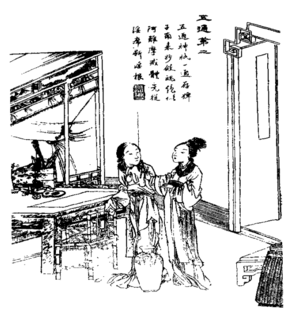
"Another Wutong Spirit" is a short story by Pu Songling first published in Strange Tales from a Chinese Studio and whose titular antagonist first appears in another Strange Tales story titled "The Wutong Spirits". In "Another Wutong Spirit", a scholar falls in love with a dragon princess and enlists her help to get rid of a sinister spirit tormenting his niece.

Samuel Thomas Russell was an English actor and stage manager. He appeared many times at Drury Lane and at the Haymarket. His most famous role was Jerry Sneak in The Mayor of Garratt.
John Sowdon was an Irish stage actor, singer and theater manager in the eighteenth century.